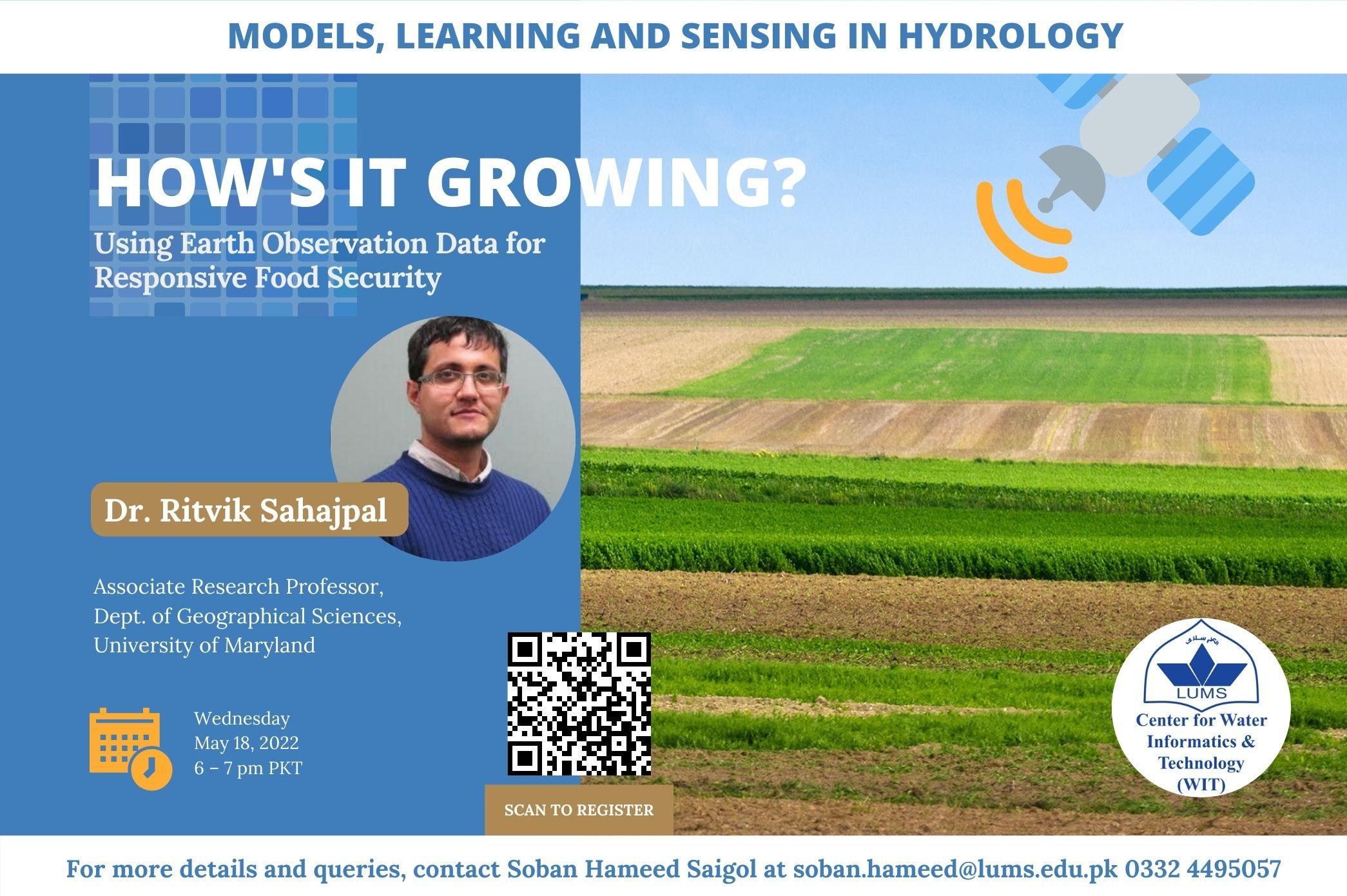
How's it Growing? Using Earth Observation Data for Responsive Food Security
Dr. Ritvik Sahajpal is an Associate Research Professor at the Department of Geographical Sciences at the University of Maryland, crop condition co-lead at NASA Harvest, and a member of the data advisory council at Foundation for Food and Agriculture Research (FFAR). His research expertise is broadly related to using Earth observation data to monitor crop yields from field to global scales, modeling the impacts of conservative agriculture practices on soil health and crop yield, and mapping land-use and land-cover change and modeling their impacts on the carbon-climate system. Dr. Sahajpal uses both machine learning and data-driven agro-ecosystem modeling techniques in his work. His research has been funded by NASA, FFAR, USAID and published in journals like Nature, Environmental Research Letters, Geoscientific Model Development and Science of the Total Environment. Previously, he was a post-doc at the Forest and Wildlife Ecology Department at the University of Wisconsin-Madison, and finished his PhD in Geographical Sciences at the University of Maryland in 2014.
About the seminar series:
The MLSH 2022 seminars are targeted towards individuals engaged in research-based activities in the hydrological sciences and will be delivered by scientists who have produced acclaimed research in the field. The concurrent emergence of new technologies, advancements in data-science and new approaches to modelling have expanded the possibility frontier for effective management of our water resources. Not only this, but these developments are uncovering new insights and spawning new discoveries that change our fundamental understanding of the Earth's hydrosphere. "Models, Learning and Sensing in Hydrology" is aimed at propagating the science and techniques of exactly this field of research.
The full schedule for the webinars can be found here which also includes recordings of past sessions. A link for attending will be sent via email to registered individuals. Colleagues who register once can attend all future talks without the need to register again.

